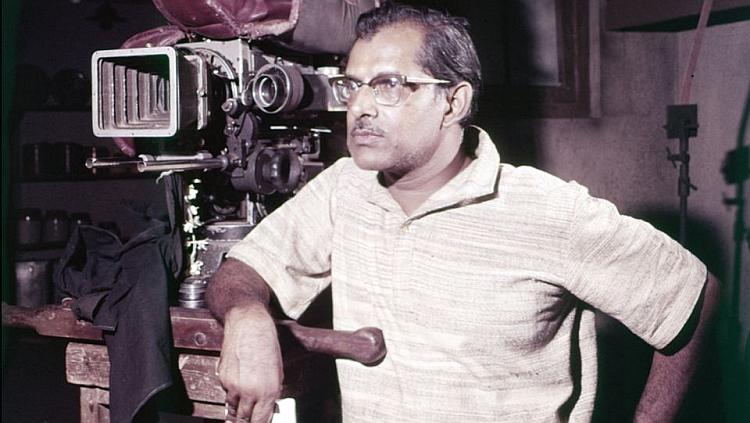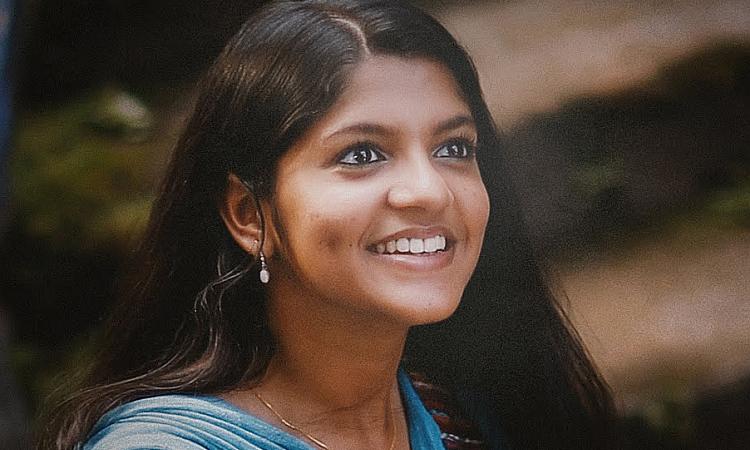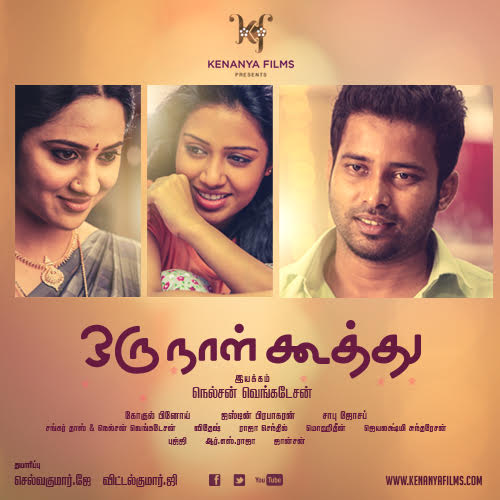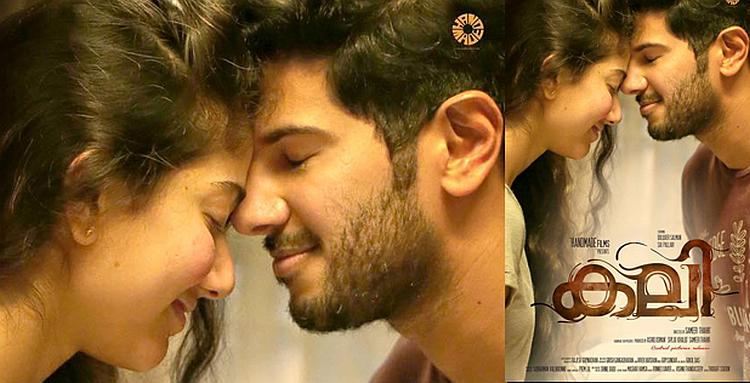{mosimage}Kochu Kochu Santhoshangal (trivial happiness), an Onam 2000 release & a malayalam Super Hit, is a Sathyan Anthikaud movie that eluded me for about 5-6 years ever since I wanted to see it. Whenever it came on TV either I had to skip it or got engaged with some other work / travel when it was telecast. Atlast I managed to catch up it on Asianet TV yesterday (01/10/2006) and it was a worth wait. KKS is a simple story told in a honest manner, that manages to tug your heart strings, propogating the importance of personal life success in a subtle way. It was no different from any other Sathyan Anthikaud's other movies - same sex paternal love, a small Tamil character, lighter first half and sentiments laddened post interval part, but sometimes I felt KKS being slightly better than his other movies.
{mosimage}The story opens in Goa with young Celina (Kavya Madhavan) falling in love with Vishnu (Jayram) who is bringing up his son (Master Kalidas) single handedly. Realising her feelings Vishnu reveals his past where had eloped with a rich girl Asha (Lakshmi Gopalswamy) and blessed with a saccherine sweet marriage life until fate intervened in form of a popular danseusse Maya Varma (Bhanupriya), drafting Asha into the field of classical dance, catapulting her to fame. Asha loses her balance in personal life with new found success and fame bringing back the old relationships. Along with the baby, Vishnu leaves Asha for good but with love, hoping a rapid stride in her career. You needn't be extremely smart to guess the rest.
{mosimage}Even though the story travels in an oft treaded path, unfolding with predicatble incidents, what keeps you hooked on screen is the straight-out-of-life like characters whom you can easily relate with. The movie is extremely subtle that if you didn't understand the characters on screen, you will be left wondering - hey, what is happening? There is no heavy duty drama associated with so called "family entertainers" at any point of time, even in the climax. Infact extremely simple climax is the trademark of Sathyan Anthikaud.
{mosimage}The story lives up to the title - few small happiness. You can get that "high" / kick when you are recognised on streets, you fly in air when you get name and fame, you feel on the top of the world when you achieve professional success (All these are small happiness), but nothing is bigger than the success in your personal life and happiness in a family. Yet the movie ends with the positive note that you needn't put your talents and professional aspirations in the back burner just for the sake you are married, but you must strike a perfect balance by devoting enough quality attention to the family. Vishnu wearing the anklets on the Asha's legs towards the end symbolises the same.
Well.. don't get bogged by questions like - "Why Asha's rich and influential father didn't find out the whereabouts of Vishnu and his kid, until Maya bumps on them accidentally years later?, Is the movie limiting the professional heights that can be achieved by the married woman? What if the genders were reversed?". Somewhere I felt that overlooking these points is better for this film. Only in the period of seperation the intensity and the magnitude of true love can be realised, justifying the duration of separation. Also there is definitely a difference in deprivation of a mother's presence than of a father's. A mother's love/presence can never be overlooked or substituted.
{mosimage}Lakshmi Gopalswamy easily wades across the role of young girl who is lost & star struck in fame. Her dancing skills come to help for the role of a classical dancer. Playing a vulnerable, poor young man intimidated by the complex living style of rich is not an alien territory to Jayaram. Master Kalidas, real life son of actor Jayaram, makes a perfect debut in the short role. Bhanupriya as the vital link of the story looks jaded. But it was the poor heirless couple KPAC Lalitha and Mala Aravindhan, who are rich in love for each other, actually drives the message and they can be easily overlooked if you didn't notice the nuances of the screenplay.
{mosimage}Sathyan never tried to glamourise his movies as musicals stuffing with dance / sentiment stuffs despite having "Maestro" Illayaraja to take care of the music department. Raja Sir makes his presence felt in the mellifluous "Koda Manjnil.." song and in the scenes of heightened tension in the flashback scenes. He blunders majorly by giving the classical number to his daughter Bhavadharini, who butchers it with a bad diction. Vipin Mohan's camera just gives the feeling of peeping your next home.
On the whole - Kochu Kochu Santhoshangal might have brought "Valliya Valliya Santhoshangal" to many lives, if the message was taken correctly and in a positive light.
{mosimage}Even though the story travels in an oft treaded path, unfolding with predicatble incidents, what keeps you hooked on screen is the straight-out-of-life like characters whom you can easily relate with. The movie is extremely subtle that if you didn't understand the characters on screen, you will be left wondering - hey, what is happening? There is no heavy duty drama associated with so called "family entertainers" at any point of time, even in the climax. Infact extremely simple climax is the trademark of Sathyan Anthikaud.
{mosimage}The story lives up to the title - few small happiness. You can get that "high" / kick when you are recognised on streets, you fly in air when you get name and fame, you feel on the top of the world when you achieve professional success (All these are small happiness), but nothing is bigger than the success in your personal life and happiness in a family. Yet the movie ends with the positive note that you needn't put your talents and professional aspirations in the back burner just for the sake you are married, but you must strike a perfect balance by devoting enough quality attention to the family. Vishnu wearing the anklets on the Asha's legs towards the end symbolises the same.
Well.. don't get bogged by questions like - "Why Asha's rich and influential father didn't find out the whereabouts of Vishnu and his kid, until Maya bumps on them accidentally years later?, Is the movie limiting the professional heights that can be achieved by the married woman? What if the genders were reversed?". Somewhere I felt that overlooking these points is better for this film. Only in the period of seperation the intensity and the magnitude of true love can be realised, justifying the duration of separation. Also there is definitely a difference in deprivation of a mother's presence than of a father's. A mother's love/presence can never be overlooked or substituted.
{mosimage}Lakshmi Gopalswamy easily wades across the role of young girl who is lost & star struck in fame. Her dancing skills come to help for the role of a classical dancer. Playing a vulnerable, poor young man intimidated by the complex living style of rich is not an alien territory to Jayaram. Master Kalidas, real life son of actor Jayaram, makes a perfect debut in the short role. Bhanupriya as the vital link of the story looks jaded. But it was the poor heirless couple KPAC Lalitha and Mala Aravindhan, who are rich in love for each other, actually drives the message and they can be easily overlooked if you didn't notice the nuances of the screenplay.
{mosimage}Sathyan never tried to glamourise his movies as musicals stuffing with dance / sentiment stuffs despite having "Maestro" Illayaraja to take care of the music department. Raja Sir makes his presence felt in the mellifluous "Koda Manjnil.." song and in the scenes of heightened tension in the flashback scenes. He blunders majorly by giving the classical number to his daughter Bhavadharini, who butchers it with a bad diction. Vipin Mohan's camera just gives the feeling of peeping your next home.
On the whole - Kochu Kochu Santhoshangal might have brought "Valliya Valliya Santhoshangal" to many lives, if the message was taken correctly and in a positive light.












